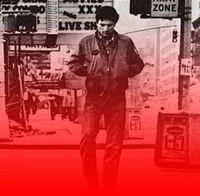First published in the Western People on Monday.
 |
A dangerous quantity of black porter
in the Palace Bar. Allegedly. |
Ireland’s relationship with alcohol is dysfunctional, dangerous and destructive. It makes us overlook the inexcusable and give a pass to behaviour that should be completely unacceptable in every circumstance.
But for all that, using statistics that don’t add up does the alcohol moderation lobby no favours. Once one of their propositions is holed, a shadow of doubt is cast over all of them and their entire argument is on shakier ground than it should be. The latest
survey figures from the Health Research Board are just such doubtful statistics.
The Health Research Board survey tells us two things that are very difficult to believe. The first is that a frightening seventy-five per cent of all alcohol consumed in Ireland was consumed as part of binge drinking, rather than the moderated sup that we like think of ourselves as indulging in.
We think that we like a little drop of the craythur to keep the cold winter away, rather than slugging the stuff back like men caught on just as the Guards were battering down the door, horsing it back because they need to destroy the evidence but can’t bear to pour the good drop away.
However, the Health Research Board’s definition of a “binge drinking session” is “the consumption of six standard drinks” in a single sitting. Six standard drinks works out at three pints of beer.
If, as an adult of mature years, you drink three pints of beer you will be aware that you are no longer sober. But to say that you have binged on the stuff is ludicrous. Ludicrous. If three pints is a binge, what word do we use to describe the amount of alcohol consumed by many people – not everybody, of course, but many people – at Christmas? On St Stephen’s night, when everybody is home? On St Patrick’s Day? Have the Health Research Board ever been at the Galway Races or the All-Ireland Final? What do they call that level of consumption?
It could be that, as far as Science is concerned, once you’ve gone past the three-pint mark, it doesn’t matter how much more you drink. By this definition, binge drinking is like being pregnant – once you’re pregnant, you can’t get more pregnant. You’ll never be pregnant-er.
But this flies is the face of both common sense and experience. For instance, many years ago, a friend of this column was stuck in London with some friends for Christmas, looking at the prospect of a lonesome Christmas dinner of cheese sandwiches on dry bread. He did what Paddy often does when he’s lonely – he went to the pub, to drink the pain away.
Unfortunately, while in the pub, he choose to mix his drinks. The next day, this young man did not have cheese sandwiches on dry bread for Christmas dinner. He spent Christmas Day being walked up and down the living room by his friends, in the hope of returning his own powers of locomotion to him.
The Health Research Board survey tells me that man did as much damage to himself as a man who drank three pints in his local on Christmas Eve, because they both went on binges. I say phooey to the Health Research Board survey.
We are told that the three-pint limit is the European Commission standard, at which news we’re supposed to – I don’t know, cheer, I suppose. But the definition is far from agreed, as a 2009 paper in the
Oxford Journals’ Social History of Medicine discusses.
The definition of binge drinking used to be what we generally understand as a binge – Richard Harris going out for a pint of milk in London and waking up slaughtered in some bar in New York three days later. The authors of the paper posit that the definition of binge drinking changed as society and politics’ reaction to drinking changed.
In the original definition, binge drinking was a sign of weakness. It showed a chap had no grit, would be read out from the altar and die drunk in an alley. This was a moral judgment.
There are have been two moves away from this definition. Firstly, alcoholism is now seen as a disease, meaning moral approbation of the old school is no longer appropriate. Secondly, the drinkers about whom society is concerned has changed.
One hundred years ago, society was concerned about layabouts who would rather drink than work. Now, society is concerned about young people drinking, especially young women. These are not the same groups, and should not be addressed in the same language.
But where Aughrim is lost is that the terminology has not changed with the public health policy. It would not have been hard to come up with a word to describe the drinking patterns of at-risk groups like young people who have more money than sense. By not inventing a new terminology, the definition appears ridiculous.
Three pints of an evening is not a session – never was, never will be. At risk young people know this from watching adults. So they know they’re being fed a line if they’re told that three pints is dangerous drinking, and automatically switch off when they should be paying attention. The Health Research Board is doing more harm than good in releasing surveys that are fine in a lab but that have no bearing whatsoever in reality.
As evidenced by the other howler in the Health Research Board survey, the definition of a “standard drink.” A standard drink, by this Health Research Board’s definition, is half a pint of beer, a small glass of wine or pub measure of spirits.
I know more or less nothing about the grape, but beer and whiskey I’ve met before. That standard drink definition tells me that three pints of beer are the same as six glasses of whiskey. Reader, they are not.
I wrote earlier that after drinking three pints of beer you are no longer sober. After drinking six glasses of whiskey you may not know that you are no longer sober, but everyone in your company is fully sure that you are drunk and are now in need of minding if things are not to get out of hand.
Whiskey is a beautiful drink, but it should only be drunk on special occasions, one glass at a time. It’s a fine toast at a birth, and a lovely tribute after a death – I seem to remember a tradition of men going for a solemn whiskey after the opening of a grave in the ancient long ago. But more than one is almost always a mistake.













